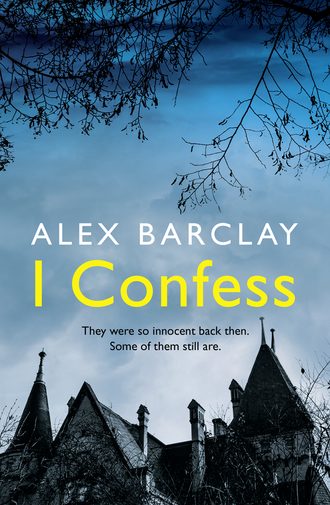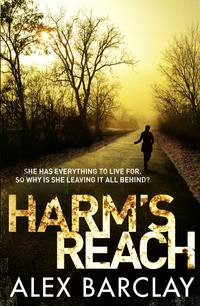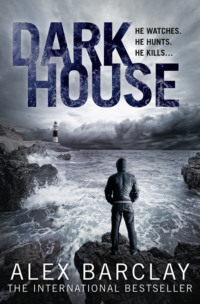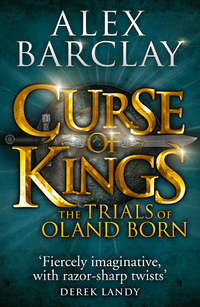
Полная версия
I Confess
Helen nodded.
‘I couldn’t have approached just anyone, saying that I wasn’t sure whether or not my husband had a clue what he was doing,’ said Edie. ‘And I wouldn’t have known what a third party would need to be able to give me informed advice. Nor would I have known how to actually gather it all together without Johnny being on to me. I knew what Patrick did, he knows us both, and he knows the property, and after looking at everything, he said, “Go for it!” So he believed in it as a business, which – in my mind – makes him the most logical person to approach as an investor.’
‘No – I know,’ said Helen. ‘It makes sense – sorry. This is my issue. I think I’m feeling guilty because Johnny’s so good.’
‘He is good,’ said Edie, ‘which is the whole point of Patrick being a possible investor – to actually relieve Johnny of pressure.’
Helen glanced up at Edie. ‘Clare – incoming.’
‘What’s going on here, ladies?’ said Clare. ‘It all looks very serious.’ She narrowed her eyes. ‘Are we setting Helen up with Patrick?’
Edie and Helen laughed. ‘No,’ said Edie.
Laura came up behind Clare. She glanced back at Patrick and Murph. ‘Murph’s on about horses.’
‘I was about to say that I’m not sure I believe Patrick Lynch that he’s single,’ said Clare.
‘Why would he lie about that?’ said Edie.
‘I don’t know,’ said Clare.
‘I totally believe he’s single,’ said Laura. ‘I’d say the mother frightened him off women for life. You look back and you think, was she well in the head at all?’ She paused. ‘In fairness, my two will probably think the same about me.’
‘Well, he’s made a success of himself,’ said Helen, ‘so she must have done something right.’
‘Whatever went on in that house,’ said Laura. ‘Good enough for her, the mother died before she could cash in.’
‘Laura!’ said Clare.
‘What?’ said Laura. ‘She was an oddball. Was she ever outside the door? Remember, you’d go by the house, and if the door was open, you’d see the Sacred Heart …’
‘Sure, every house had a Sacred Heart back then,’ said Helen.
‘They did not,’ said Laura. ‘And none were in your face like that.’
Edie glanced over at him. ‘Poor Patrick.’
‘Not any more,’ said Laura.
The others laughed.
‘Right,’ said Edie. ‘I’ll be back. I have a few last-minute bits to do.’
‘I’m mortified,’ said Helen, ‘Honestly. I don’t mind if we have spaghetti on toast.’
Laura rolled her eyes. ‘How about nuggets and chips? Would you eat them if she landed them up in front of you?’
‘Yes!’ said Helen.
‘You would, of course,’ said Laura. ‘Sure, you can’t say “no”!’
The others laughed.
‘What?’ said Helen.
‘Your catchphrase,’ said Clare. ‘“I couldn’t say “no”!”’
‘It is not,’ said Helen. ‘Is it? Did I say that a lot?’
Edie smiled. ‘You still do.’ She put her hand on Helen’s shoulder, and gave it a squeeze. ‘There are worse catchphrases to be known for.’
Edie did one last check of the dining table. She stopped at each place setting, turned the childhood photos right side up, and stood them against a wine glass. When she reached Patrick’s, there was the sound of paper crinkling underfoot. She stepped back and crouched down. There were two pages on the floor – lined, yellowed, ripped from a notebook, both rigid from where a red or black biro had moved back and forth across them with such force, it had broken through the page in places. Edie took them in her hand, and stood up. Her legs went weak, and she reached out for the back of the chair to steady herself. There were crude drawings of faces on each page – circles for heads, black Xs for eyes. The first had a crooked line for a mouth, and a jagged head wound, spurting blood. There was a hammer drawn beside it. The second had a large circle for a mouth, a noose around its neck and a rope that disappeared off the top of the page. HA HA HA HA HA was written to the right of it, and underneath: BYE BYE PATRICK LYNCH.
9
PATRICK
Castletownbere, 1981
Patrick was nine years old, standing in the kitchen doorway. His mother was at the sink, an empty chair beside her. She looked at him and nodded down at it.
Patrick shook into stillness. He knew he was to get up on the chair, but he didn’t know what he’d done. Nothing bad had happened in school that day. He always behaved himself. He was never late, he was always polite.
Mrs Lynch’s eyes widened. She moved towards him, reached into the pocket of her apron, and whipped out a piece of paper. She unfolded it and held it up. Before he had a chance to focus on it, she pushed it closer to his face. ‘What’s this nonsense?’ she said.
Patrick pulled his head back so he could see. It was a page she had ripped from his religion copy. On the top half was a picture he’d drawn of a boat, with a boy beside him. The sun was shining, the sky was a skinny blue strip at the top of the page, the birds were waiting for fish. What was causing the problem that his mother was pointing at now were the huge smiles on the boy and the man.
‘It’s not nonsense,’ said Patrick.
His mother turned the page around to face her. She read out loud what he had written on the lines underneath the picture – in the voice she used when she wanted him to hear himself: ‘“I am fishing with Daddy. We are on the boat. We are catching so much fish. We went to Dursey Island on the cable car. There was a sheep in it. It was so funny. We had a picnic. Then we went home.” She looked up at the title. ‘So that’s “My Best Day” by Patrick Lynch. Have you ever seen such nonsense in all your life?’
Patrick’s face burned, and the heat seemed to flush through his whole body. His mother was glaring at him, waiting for him to reply.
Patrick shrugged.
‘Don’t you shrug your shoulders at me!’ She shook the picture again. ‘And a big red tick beside it and a “VG, Patrick!” I’ll VG her when I see her.’
‘Don’t, Mammy! She’s so nice.’
‘Nice!’ said his mother. ‘Nice?’
‘What’s wrong with it?’ said Patrick, brave, tentative.
His mother looked at him, her face pinched, lines like arrows piercing the tight circle of her mouth.
‘What’s wrong with it?’ she mimicked.
‘Why don’t you like it?’ said Patrick.
‘Like it?’ she said. ‘This?’ She rattled the page again.
Patrick shook his head. ‘No.’ His eyes darted everywhere before they tried to settle on hers, but he couldn’t even manage that. ‘Why don’t you like it when things are nice?’
His mother stared at him. ‘Get up on that chair now this minute.’
Patrick walked towards the sink behind her, his heart hammering, his eyes never leaving the picture. She was holding it between her thumb and index finger like it was dirty. He just wanted it back. It was his favourite picture and it was his favourite imaginary day. He knelt up on the chair. She lowered her left hand into the sink, and he watched the page disappear after it.
Patrick let out a moan. ‘No, Mammy. Mammy, no!’
Mrs Lynch lifted her hand slowly from the water, and tossed the picture to one side, where it clung, briefly, to a bucket of potato skins.
The same hand went into the sink again, and she rattled the dishes around to make space. Patrick jumped at the speed her right hand came down on the back of his neck. She plunged his head under the water, and his forehead struck the edge of a thick glass tankard. His scream, reflexive, and submerged, sent a rush of bubbles from his nose and mouth.
‘Jesus Christ Almighty!’ said Mrs Lynch, yanking him up. ‘You could have split your head open on that!’
When she was angry, her sentences came in a low snarl with highs like sparks from embers. She plunged him under again.
He had time to taste the water, and it tasted of cabbage and fish and bleach. She pulled him out again, and he hung from her grip, gasping, and red-eyed. Then she gave him three hard shakes – his prompt.
‘Sorry, Mammy,’ he said. ‘I’m sorry! I’m sorry!’
She held him there, spluttering, his head bowed, a string of saliva hanging from his lip, until, eventually, her body relaxed.
Sorry was his mother’s drug. She needed to hear it for every transgression, real or concocted. She had never heard it from the husband she had kicked out. Not even on the last day she had seen him, when he left her to her insanity, and her fury, and their seven-year-old son, whose blond hair glowed red under the flickering bulb of a Sacred Heart light.
10
Edie left the dining room, the pages of the notebook wrapped inside a napkin, gripped tight in her trembling hand. She stopped, briefly, in the hallway and let out a long breath. Johnny jogged up behind her. She jumped.
‘Hey, hey, hey,’ he said. ‘What’s up?’
‘Oh!’ said Edie. ‘Nothing! It’s … ridiculous. I’m … nervous about dinner.’
‘You need to get some more Prosecco into you.’ He looked at her. ‘Or maybe not. You’re white as a sheet.’
‘I bent down and got up too quickly,’ she said. ‘You were right, though – I don’t know what I was thinking, cooking.’
Johnny put his hands on her shoulders and made her loosen them out. ‘Breathe. It’s our friends. No one cares. Everyone’s drinking away, happy out.
‘You’re playing a blinder.’
‘Thanks,’ said Edie.
‘What do you want me to do?’ said Johnny.
‘Keep everyone entertained for five minutes. I need to nip to the office. Then I’ll get the starters.’
‘I can do that,’ said Johnny.
‘It’s fine – go do your thing.’
She walked down the stairs in to the office, her legs shaking. She went over to the safe, crouched down and punched in the code. She pulled open the door and slipped the pages into one of her folders and closed it again.
Edie stood outside the honesty bar, the heels of her hands pressed against her eyes. She straightened up, took in a deep breath, smiled, and opened the door.
‘Ladies and gentlemen,’ she said, ‘Dinner is now served.’
Everyone cheered. Johnny held the door open as they filed out and followed Edie down to the dining room. Edie checked she had everyone’s attention before she opened the tall double doors with a flourish. The chatter petered out as they walked in. Laura banged into the back of Helen’s chair when she stopped just inside the threshold, her hand to her mouth.
‘Oh Edie,’ was all Helen could manage. ‘Oh Edie,’ she said again, lifting her hand and waving it in front of her, as if to introduce the room. She turned to the others. ‘You can imagine what this is normally like – formal, elegant … Edie. And this … This—’
‘Designer forest clearing,’ said Clare.
Everyone laughed.
Helen’s eyes, when they met Edie’s were shining. ‘Now, this,’ she said, ‘This is what it feels like to be seen’. Edie bent down to hug her. ‘Thank you,’ Helen whispered in her ear. They embraced for a long time, before pulling apart, both laughing and wiping away tears. ‘And thank you, Johnny.’
‘Pleasure,’ said Johnny. ‘Absolute pleasure.’
‘Come in. Come in, everyone,’ said Edie.
‘I’ll go get the starters,’ said Johnny.
‘Thanks,’ said Edie. She turned to the others. ‘I didn’t do place names, but I did do place photos.’ She smiled.
Clare found hers first. ‘Oh, thank God – no perm.’ She squinted at it. ‘And it looks like I’ve got the hang of Immac.’ She ran a finger across her upper lip, and made a face.
‘That state of me!’ said Laura, holding her photo up. ‘I haven’t changed a bit.’ She leaned into Murph’s. ‘What’s yours?’
He gave her a sad smile as he handed it to her. ‘Me and the love of my life.’
Конец ознакомительного фрагмента.
Текст предоставлен ООО «ЛитРес».
Прочитайте эту книгу целиком, купив полную легальную версию на ЛитРес.
Безопасно оплатить книгу можно банковской картой Visa, MasterCard, Maestro, со счета мобильного телефона, с платежного терминала, в салоне МТС или Связной, через PayPal, WebMoney, Яндекс.Деньги, QIWI Кошелек, бонусными картами или другим удобным Вам способом.









